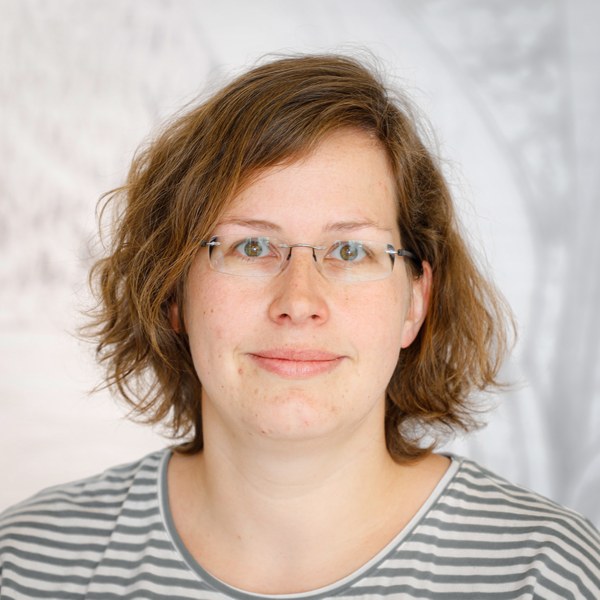Publications PhD Laura Junker-Frohn
Peer-reviewed publications
Lu W, Zeng Y, Vilfan N, Huang J, Van Wittenberghe S, He Y, Gao Y, Junker-Frohn LV, Su W, Liu Q, Siegmann B, Hao D: Characterizing leaf-scale fluorescence emission with spectral invariants. (Accepted with minor revisions by Remote Sensing of Environment)
Quiros-Vargas J, Siegmann B, Bendig J, Junker-Frohn LV, Jedmowski C, Herrera D, Rascher U: Remote sensing of solar induced chlorophyll fluorescence (2024). In T. Prassad (Ed.), Remote Sensing Handbook (2nd ed., Vol. III). CRC Press
Jollet D, Junker-Frohn LV, Meyer-Lüpken T, Steier A, Müller-Linow M (2023): A new computer vision workflow to assess yield quality traits in bush bean (Phaseolus vulgaris). Smart Agricultural Technology 5: 100306
Kierdorf J, Junker-Frohn LV, Delaney M, Donoso Olave M, Burkart A, Jaenicke H, Muller O, Rascher U, Roscher R: GrowliFlower (2022): An image time series dataset for GROWth analysis of cauLIFLOWER. Journal of Field Robotics 40 173–192
Reimer JJ, Thiele B, Biermann RT, Junker-Frohn LV, Wiese-Klinkenberg A, Usadel B, Wormit A (2021): Tomato leaves under stress: a comparison of stress response to mild abiotic stress between a cultivated and a wild tomato species. Plant Molecular Biology 107: 177–206
Ruett M, Junker-Frohn LV, Siegmann B, Ellenberger J, Jaenicke H, Whitney C, Luedeling E, Tiede-Arlt P, Rascher U (2021): Hyperspectral imaging for high-throughput vitality monitoring in ornamental plant production. Scientia horticulturae 291: 1105461 (data available on figshare)
Drees L, Junker-Frohn LV, Kierdorf J, Roscher R (2021): Temporal prediction and evaluation of Brassica growth in the field using conditional generative adversarial networks. Computers and Electronics in Agriculture 190: 106415
Siegmann B, Cendrero-Mateo MP, Cogliati S, Damm A, Gamon J, Herrera D, Jedmowski C, Junker-Frohn LV, Kraska T, Muller O, Rademske P, van der Tol C, Quiros-Vargas J, Yang P, Rascher U (2021): Downscaling of far-red solar-induced chlorophyll fluorescence of different crops from canopy to leaf level using a diurnal data set acquired by the airborne imaging spectrometer HyPlant. Remote sensing of Environment 264: 112609
Genzel F, Dicke MD, Neuwohner A, Thiele B, Wormit A, Putz A, Junker-Frohn LV, Usadel B, Wormit A, Wiese-Klinkenberg (2021): Impact of moderate cold and high salt stress on the accumulation of antioxidant flavonoids in leaves of two contrasting Capsicum cultivars. Journal of Agricultural and Food Chemistry 69 (23): 6431–6443.
Junker-Frohn LV, Lueck M, Schmittgen S, Wensing J, Carraresi L, Thiele B, Groher T, Reimer JJ, Bröring S, Noga G, Jupke A, Schurr U, Usadel B, Wiese-Klinkenberg A, Wormit A (2019): Tomato’s green gold: Bioeconomy potential of residual leaf biomass as a novel source for secondary metabolites. ACS Omega 4: 19071−19080.
Junker-Frohn LV, Kleiber A, Jansen K, Gessler A, Kreuzwieser J, Ensminger I (2019): Differences in isoprenoid-mediated energy dissipation pathways between coastal and interior Douglas-fir seedlings in response to drought. Tree physiology 39 (10): 1750–1766.
Duan Q, Kleiber A, Jansen K, Junker-Frohn LV, Kammerer B, Han G, Zimmer I, Rennenberg H, Schnitzler JP, Ensminger I, Gessler A, Kreuzwieser J (2019): Effects of elevated growth temperature and enhanced atmospheric vapour pressure deficit on needle and root terpenoid contents of two Douglas fir provenances. Environmental and Experimental Botany 166: 103819.
Du B, Kreuzwieser J, Dannenmann M, Kleiber A, Eiblmeier M, Junker LV, Jansen K, Ensminger I, Gessler A, Kohnle U, Rennenberg H, Wildhagen H (2018): Foliar nitrogen metabolism of adult Douglas fir trees is affected by soil water availability and varies little among provenances. PLOS ONE 13 (3): e0194684.
Kleiber A, Duan Q, Jansen K, Junker LV, Kammerer B, Rennenberg H, Ensminger I, Gessler A, Kreuzwieser J (2017): Drought effects on root and needle terpenoid content of a coastal and an interior Douglas fir provenance. Tree physiology 37 (12): 1648–1658.
Junker LV, Kleiber A, Jansen K, Wildhagen H, Hess M, Kayler Z, Kammerer B, Schnitzler JP, Kreuzwieser J, Gessler A, Ensminger I (2017): Variation in short-term and long-term responses of photosynthesis and isoprenoid-mediated photoprotection to soil water availability in four Douglas-fir provenances. Scientific reports 7 : 40145.
Junker LV and Ensminger I (2016): Fast detection of leaf pigments and isoprenoids for ecophysiological studies, plant phenotyping and validating remote-sensing of vegetation. Physiologia Plantarum 158 (4): 369–381.
Hess M, Wildhagen H, Junker LV, Ensminger I (2016): Transcriptome responses to temperature, water availability and photoperiod are conserved among mature trees of two divergent Douglas-fir provenances from a coastal and an interior habitat. BMC Genomics 17: 682.
Junker LV and Ensminger I (2016): Relationship between leaf optical properties, chlorophyll fluorescence and pigment changes in senescing Acer saccharum leaves. Tree Physiology 36 (6): 694-711.
Fréchette E, Wong CYS, Junker LV, Chang CY and Ensminger I (2015): Zeaxanthin-independent energy quenching and alternative electron sinks cause a decoupling of the relation between the photochemical reflectance index (PRI) and photosynthesis in an evergreen conifer during spring. Journal of Experimental Botany 66 (22): 7309-7323.
Du B, Jansen K, Junker LV, Eiblmeier M, Kreuzwieser J, Gessler A, Ensminger I, Rennenberg H (2014): Elevated temperature differently affects foliar nitrogen partitioning in diverse Douglas fir provenances. Tree physiology 34 (10): 1090-1101

